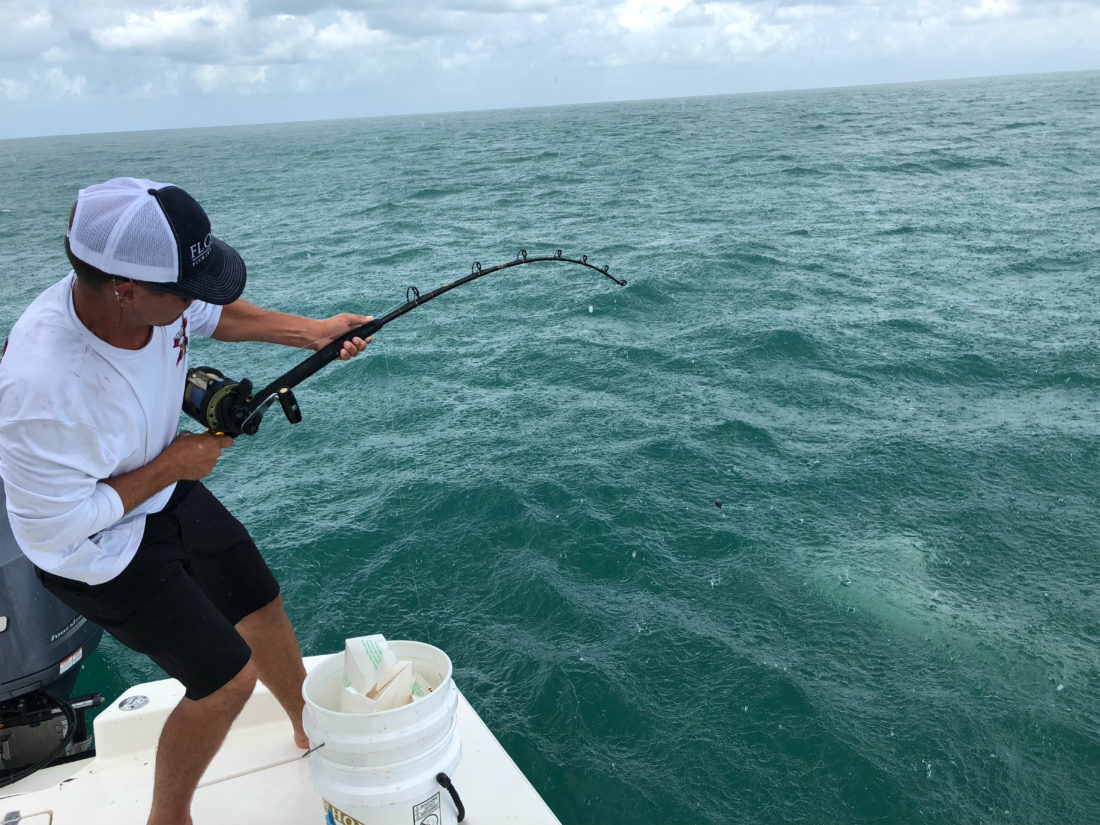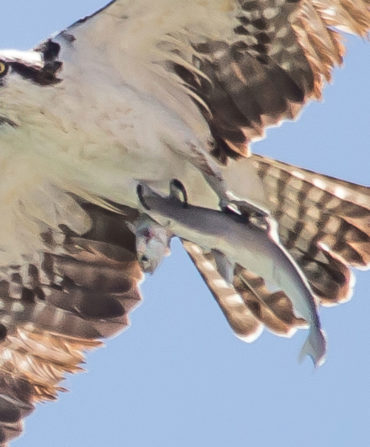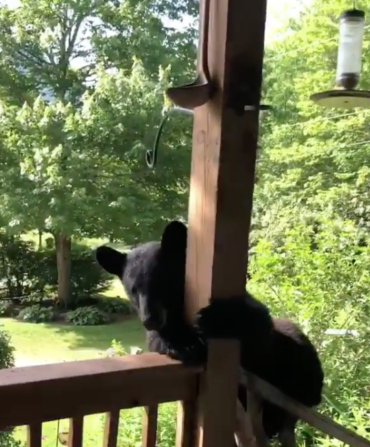Sharks, we’ve always been taught, are the apex marine predator, the very top of the ocean food chain. Last week, about twenty miles off the coast of Everglades City, Florida, a fishing charter got to see firsthand what happens when another fish, in this case a much bigger fish, challenges that fact.
Led by Captain Jimmy Wheeler, a Florida-native and founder of the Everglades Fishing Company, a family from Indiana was on the hunt for snook, cobia, snapper, and permit when they hooked a three-foot reef shark. As they reeled it in, a 500- to 600-pound goliath grouper advanced and inhaled the shark.
“It was pretty intense and so exciting,” Wheeler says. “To be with people who had never seen this kind of thing before makes me really love my job.”
It is not unusual for a goliath grouper to grow this big—the largest of the species can reach 800 pounds and eight feet long. They also will chow down on nearly anything. “Typically, grouper will eat whatever fish you’re pulling in,” Wheeler says. “If they see them flailing and disabled—and if they think they can fit it in their mouths—they’ll go for it.”
In this instance, though, the grouper’s eyes were a bit bigger than its stomach. After a few minutes of wrestling, the fish spit out the shark and swam away. Wheeler then reeled in the shark, unhooked it, and threw it back out into the water. The grouper, however, did not go hungry. “Right after that, we accidentally hooked a stingray the size of a stop sign,” Wheeler says. The same grouper reappeared, ripped the ray off the line, and ate it whole.
Although always thrilling, this type of thing occurs fairly often out on the water. “Yesterday, I had the same thing happen, actually,” Wheeler says. “But it was a bigger shark and three grouper.”








